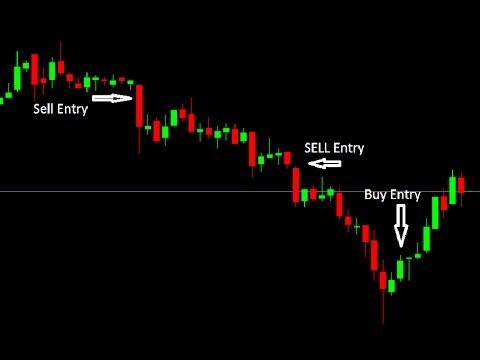Bonds and stocks difference: Stocks, Bonds, and Mutual Funds Overview, Characteristics
Contents:

The most common American benchmarks are the Bloomberg Barclays US Aggregate , Citigroup BIG and Merrill Lynch Domestic Master. Retail bonds are a type of corporate bond mostly designed for ordinary investors. A War bond is a bond issued by a government to fund military operations and other expenditure during wartime. It will often have a low return rate, and so can be bought due a lack of opportunities or patriotism. A supranational bond, also known as a «supra», is issued by a supranational organisation like the World Bank. They have a very good credit rating, similar to that on national government bonds.

You can buy Treasury securities directly through the Treasury Direct website. Stock trading involves buying and selling shares of publicly traded companies. It typically happens in the United States on exchanges like the New York Stock Exchange or the Nasdaq stock market. Resembles bonds even more, and is considered a fixed-income investment that’s generally riskier than bonds, but less risky than common stock.
As these bonds are riskier than investment grade bonds, investors expect to earn a higher yield. Same as with bonds, companies issue stocks to raise money from investors. When a company’s stock is sold on a stock exchange for the first time, it happens through a process called initial public offering . With bonds, prices are determined based on how ratings companies, like S&P and Fitch, rate the creditworthiness of the issuer of the bond. The likelihood that Apple will default on its loans is very low, so the company can borrow at very low interest rates (say, 2%).
Difference Between Shares and Bonds: Which is Better for You?
Companies may issue shares to the public for several reasons, but the most common is to raise cash that can be used to fuel future growth. Generally, bonds are generally seen as safe, but there are some risks to note. All investments including stocks, bonds, and debentures, carry an element of risk.
A Climate https://forex-world.net/ is a bond issued by a government or corporate entity in order to raise finance for climate change mitigation- or adaptation-related projects or programmes. For example, in 2021 the UK government started to issue «green bonds». So-called “junk” bonds typically carry the lowest ratings, which reflect the issuing entity’s credit rating or longevity in the industry. In contrast, a puttable bond is one that the debt holder can sell back to the company before its maturity date.
Treasury securities, is said to be less risky than investing in stock markets, which are prone to greater volatility. Corporate bonds, on the other hand, have widely varying levels of risk and returns. A company’s ability to pay back debt is reflected in its credit rating, which is assigned by credit rating agencies such as Moody’s and Standard & Poor’s. Corporations often issue equity to raise cash to expand operations, and in return, investors are given the opportunity to benefit from the future growth and success of the company. When you hear about equity and debt markets, that’s typically referring to stocks and bonds, respectively. The investing information provided on this page is for educational purposes only.
What Is Preferred Stock, And Who Should Buy It? — Bankrate.com
What Is Preferred Stock, And Who Should Buy It?.
Posted: Mon, 11 Jul 2022 07:00:00 GMT [source]
You need to determine how much volatility you are comfortable with, during the short term, as an exchange for more substantial gains in the long-term. United States Treasury bonds are typically more stable over the short term than stocks are. However, as noted above, the lower risk will naturally translate into a lower return.
Closing Market Update: Stocks on Track for Q1 Gain
Unlike asset-backed securities, the assets for such bonds remain on the issuer’s balance sheet. Indentures and Covenants—An indenture is a formal debt agreement that establishes the terms of a bond issue, while covenants are the clauses of such an agreement. Covenants specify the rights of bondholders and the duties of issuers, such as actions that the issuer is obligated to perform or is prohibited from performing. In the U.S., federal and state securities and commercial laws apply to the enforcement of these agreements, which are construed by courts as contracts between issuers and bondholders.
S. Government bonds– These are the debt obligations of the US government and are known as treasuries. Stockholders may have to pay DDT in case the returns are received, further curtailing the returns received, but bonds are not exposed to such tax burdens. Stockholders are considered owners of the companies and are given preference in terms of voting rights on important matters. Bondholders are creditors to the company and do not get voting rights. Stocks are issued by various companies, whereas Bonds are issued by corporates, government institutions, financial institutions, etc.
Some bonds can be risky
Stockin a company, you buy a slice of that company in the form of a “share.” The more stock shares you purchase, the more ownership you have in that company. A bond, for the most part, offers fixed interest payments over time. Puttability—Some bonds give the holder the right to force the issuer to repay the bond before the maturity date on the put dates; see put option. A moderately aggressive strategy can be more appropriate once your portfolio has gained some traction and you have moved into a stage of life.
For example, some recent high-profile IPOs include Spotify and Uber . When these companies did their IPOs, they received billions of dollars from the thousands of investors who bought the company’s shares. Below are more details about stocks and bonds, as well as the differences and similarities between them. Each share of stock represents an ownership stake in a corporation.

The greatest difference between stocks and bonds are their risk levels and their return potential. Speaking very generally, stocks have historically offered higher returns than bonds but also come with increased risk. While you may earn more with stocks, you may also stand to lose more.
However, unlike bonds, the dividends are not guaranteed and can be increased, decreased, or even cut entirely if the company feels that it needs to preserve cash. They want to buy stocks in companies that have consistent revenue and profit growth, so picking good companies with solid growth potential is essential. As an owner, the investor will also have 1% of the company’s voting rights. If a company has one hundred thousand outstanding shares, an investor who buys a thousand shares will effectively own 1% of the company. However, bonds represent debt, meaning that you are effectively lending money that must be paid back to you, with interest. They are taxed in the same way that the bought and sold stocks are.
The belief behind this adage certainly makes a lot of sense because as you start to approach retirement age, you’ll want to protect your finances from wild swings in the market. You do so by allocating more funds into bonds, while allocating less into stock. When you hear discussions about stocks vs. bonds, you’ll often hear references to the equity market and debt market.
How you balance the two bonds and stocks difference is just one step toward having a diversified portfolio, which can help reduce your overall risk as an investor. With stocks, the company sells a part of itself in exchange for cash. With bonds, the entity gets a loan from the investor and pays it back with interest. The biggest similarity between stocks and bonds is that both of them are financial securities sold to investors to raise money.
- The greatest difference between stocks and bonds are their risk levels and their return potential.
- The quality of the issue refers to the probability that the bondholders will receive the amounts promised at the due dates.
- You should consider whether you understand how spread bets and CFDs work and whether you can afford to take the high risk of losing your money.
A stock market is a place where investors go to trade equity securities (e.g., shares) issued by corporations. Another important difference between stocks and bonds is that they tend to have an inverse relationship in terms of price — when stock prices rise, bonds prices fall, and vice versa. Stocks, or shares of capital stock, represent an ownership interest in a corporation. Some corporations issue preferred stock in addition to its common stock. The bond market and the stock market contain an endless number of popular instruments to invest in, and they are two of the largest financial markets in the world after forex trading.
Common Types of Bonds 📜
Sometimes federal, state, and local taxes apply; other times, none apply. For a thorough explanation of how municipal bonds are taxed, see this Investopedia article. This comparison offers a basic overview of these asset classes and considerations for incorporating them in a diversified portfolio. Explain the difference between a bond issued at a premium versus one issued at a discount. Explain how the financial reporting of fiduciary funds differs from that of governmental funds.

Let’s say the share price is $10 and you purchase 100 shares of a stock. Let’s say the stock doubles in a 12-month period to $20 a share and you decide to sell your shares. You gain $2,000 from your $1,000 investment, and now you have $2,000 in cash to invest in another stock. This also reflects the debate of bond returns vs stock returns. Therefore, you could say that they are a relatively safer investment. Both markets cover a variety of sectors within finance, technology and healthcare, among many others.
Instead, the government entity or company is indebted to you once you buy the bond and pay interest to you over a specific period, after which the bond is repaid in full. If, for example, the company files for bankruptcy during this period, you may not receive your interest payments. Ultimately, you may not receive your total principal amount either. The word “stock” is the common name for this type of investment, but they go by other names, such as corporate shares, common stock, equity securities, corporate stock, and equity shares. There are several reasons why a company would offer shares to investors. However, the common reason is for raising cash to fund future growth.
This could happen due to changes in interest rates, an improved rating from the credit agencies or a combination of these. Low-cost index funds, which offer a cheap, easy form of diversification and typically less risk than individual stocks. Some argue that 110 or even 120 minus your age is a better approach in today’s world. To stimulate spending, the Federal Reserve typically cuts interest rates during economic downturns — periods that are usually worse for many stocks. But the lower interest rates will send the value of existing bonds higher, reinforcing the inverse price dynamic. For example, if you buy a bond with a 2% yield, it could become more valuable if interest rates drop, because newly issued bonds would have a lower yield than yours.




